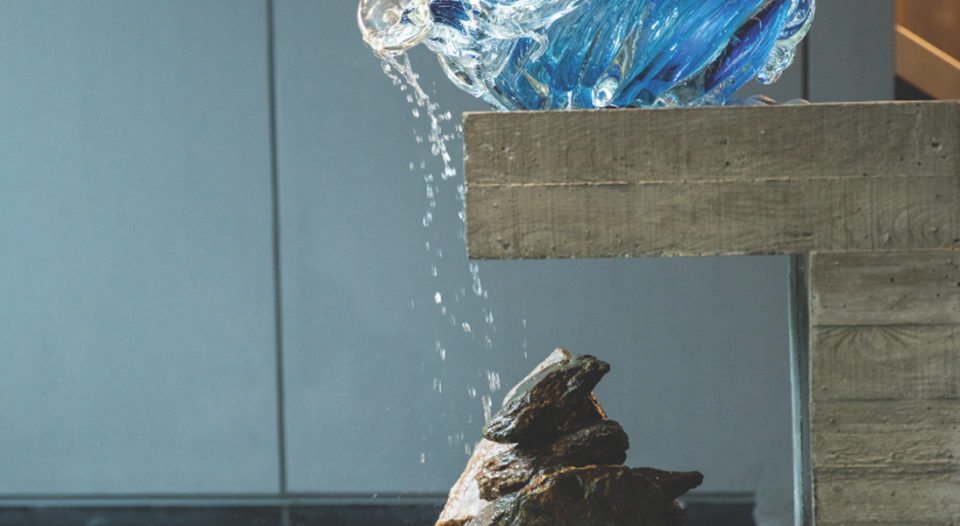Series editor’s note: Throughout 2021, “Deeper understandings” will continue to engage the ELCA’s commitment to authentic diversity. —Kathryn A. Kleinhans, dean of Trinity Lutheran Seminary at Capital University, Columbus, Ohio
At a recent faculty retreat I was asked: “How do you steward your baptismal vocation?” My immediate response was: “The more I gain clarity about my baptismal vocation, the deeper the pain I feel.”
That didn’t answer the question directly, nor satisfy my desire to make sense of what we are going through in an increasingly precarious world. As someone who processes information internally, I keep reflecting on my own reflection. The topic of baptismal vocation—witness to the world and service to others—deserves deep thought and consideration.
About a year ago, I was invited to deliver a presentation as part of an interview for a teaching position at Wartburg Theological Seminary, Dubuque, Iowa. What mattered to me was how fitting my message would be for the complex reality of the pandemic, which affected us all but caused a disproportionate number of deaths among communities of color. This was also a time when anti-Asian sentiment exploded across the country as Asians and Asian Americans bore the brunt of blame for COVID-19.
My renewed sense of baptismal vocation has emerged from spaces of ambivalence, and it becomes more intense when I realize I am called in the midst of massive suffering.
My presentation’s subtitle was “Reimagining God in the Midst of a Global Pandemic.” The task of reimagination involved rethinking God’s justice and mercy through the cross and inviting the community to confront injustice of all kinds.
I was hired during a pandemic, which subverted my romanticized vision of a new life blessed by word and water, wine and bread. My renewed sense of baptismal vocation has emerged from spaces of ambivalence, and it becomes more intense when I realize I am called in the midst of massive suffering.
Millions of people have lost jobs, grieved the loss of a loved one or struggled to survive at this time of crisis. Anti-Asian hate incidents have risen dramatically, with a spate of attacks targeting seniors. My fellow congregants and I have voiced our concerns and lament that we face two pandemics at the same time. And in March the ELCA Association of Asians and Pacific Islanders issued a statement addressing racially motivated violence against Asian communities across the country.
Boldness in times of uncertainty
Living our baptismal vocation during these challenging times can never be severed from the intertwined relationships between self and others within the community. Witnessing people’s fear, agony, tears and suffering at the hard edges of their reality increases our empathy toward others, which further expands our sense of vocation.
We are meanwhile promised more frustrations as we get to know more about those conflicting realities. Our wounds get deeper upon encountering the ugliness of humanity expressed through hypocrisy, denial, indifference, greed, calculated and manipulated policies, power-mongering and gatekeeping.
Speeches about change blossom, yet any talk of change is superficial without naming the fact that we all have been shaped by preexisting systems that privilege those in power and subjugate the marginalized. Any talk of change without demonstrating the courage to disrupt resistant forces and address core issues is oversimplified. Our baptismal vocation sets us exactly in a situation that challenges us to be vulnerable, let go of control and stop setting the agenda by selectively choosing what needs to be changed. Change within boundaries affirms the reality in which we live. This form of change seeks only to do business as usual.
Standing at these spaces of ambivalence, the cross has carried the weight of the world. Yet, hope is grounded in the pain of the cross at its deepest level. The self-emptying love of God in Jesus Christ on the cross has made real change possible.
Baptized Christians are called to persistently traverse the precarious and messy world.
Our baptismal vocation is intimately connected with the cross, which absorbs the pain of the world and speaks to us in the most reassuring way: We all are beloved creations of God, regardless of race, ethnicity, gender, sexual orientation or any category that divides us. We all are sacred. We deserve to be treated with dignity.
Baptized Christians are thus called to persistently traverse the precarious and messy world. In the spaces traumatized by painful memories, we are to give witness to God’s grace and love in Jesus Christ through embracing our shared humanity, combating implicit bias, destabilizing self-perpetuating systems and structures that discriminate, and being bold in times of change and uncertainty.
What is holding us back from truly living our baptismal vocation? What is the shame or the guilt or the worry that keeps us from recognizing others as God’s beloved creation? What really matters?




